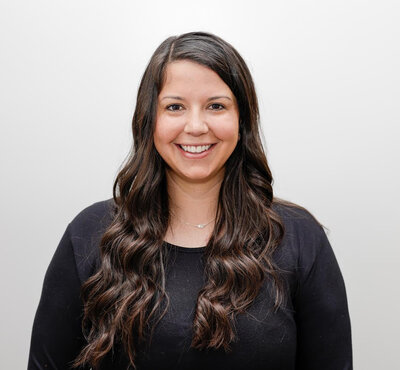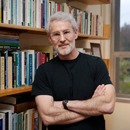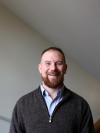Page 43 • (1,739 results in 0.044 seconds)
-
https://www.youtube.com/watch?v=wg0AIF4hW6o Learning to Brew By Chris Albert The summer after graduating, Ken Thoburn ’09 hung out at backyard BBQs , sipping on home brews he and his friends had made. Everyone kept saying, “Guys, you should start a brewery,” Thoburn recalled. That’s when the Chinese…
September 5, 2013 https://www.youtube.com/watch?v=wg0AIF4hW6o Learning to Brew By Chris Albert The summer after graduating, Ken Thoburn ’09 hung out at backyard BBQs, sipping on home brews he and his friends had made. Everyone kept saying, “Guys, you should start a brewery,” Thoburn recalled. That’s when the Chinese Studies major and some friends, who also had recently graduated from local colleges—and also had not planned on selling beer—took their backyard beverages to brand-new heights
-
by Jenna Stoeber Christmas break is nearing, and with it comes a chance for faculty to catch their breath after a long and hard fall—before revving back up for another semester. The holiday break is ideal for exploring new methods of teaching, so why not…
, invigorating the learning process for you and your students. Contextualizing Location Our first example comes straight from PLU from History Professor Mike Halvorson, who created an interactive map of Ancient Egypt that overlaid modern-day Egypt for his course on Western Civilization. Students can zoom in on important locations and monuments, while still able to keep these locations rooted in a global context. Halvorson marks sites down the Nile River. Click to view larger. Bird’s eye view of the
-

Clinical Instructor of Nursing | School of Nursing | dlett@plu.edu | Originally from CA, WA is home for now.
became a Family Nurse Practitioner in 2018. I have two daughters who are my pride and joy and keep me very busy. I have been teaching at PLU since January of 2019 where I started teaching in the traditional BSN program but as of last year have been working primarily in the ABSN program. In addition to teaching at PLU, I also work as a nurse practitioner in aesthetics as well as internal medicine.
Contact Information -
Guangzhou University, China Sichuan University, China Reims Management School, France Instituto Cultural Oaxaca, Mexico University of Namibia Telemark University College, Norway Bjorknes College,
Semester Program University of Aberdeen, Scotland – Semester Program University of Puget Sound– Oaxaca, Mexico Semester Program Willamette University – Oaxaca, Mexico Semester Program Community Partners and Memberships China Partners Network Chinese American Reconciliation Project Foundation South Sound China Advisory Council Washington State Chinese Teachers Network World Affairs Council-Tacoma World Trade Center- Tacoma Organizational and Professional Memberships Diversity Abroad Network Forum on
-

Professor of English | Department of English | campbetj@plu.edu
Thomas Campbell Professor of English Email: campbetj@plu.edu Professional Education Ph.D., University of Oregon, 1981 M.A., Portland State University, 1976 B.S., University of Oregon, 1968 Areas of Emphasis or Expertise British Literature Bloomsbury Group and Literary Modernism Personal Writing Romanticism AIDS Literature Accolades Faculty Excellence Award for Teaching, 2003-04 Teaching Excellence Award, PLU Center for Teaching and Learning, 2001
Contact InformationArea of Emphasis/Expertise -

Department Chair and the Program coordinator of French, Central Washington University | Confucius Institute of the State of Washington | mijohnson@cwu.edu | 509-963-3559 | Dr.
Michael Johnson Department Chair and the Program coordinator of French, Central Washington University Phone: 509-963-3559 Email: mijohnson@cwu.edu Biography Biography Dr. Johnson is the Department Chair and the Program coordinator of French. He earned his PhD at Emory University in French and Comparative Literature in 2005. Among his teaching and research interests are medieval literature, gender and sexuality, Franco-Belgian comics, French and Spanish language, and grammar.
-
By the end of their first year, minors should have taken 2 Anthropology 100 level courses and: know and use anthropological concepts know the major perspectives of anthropology (linguistic,
race, class, and ethnicity on human life have experience writing anthropologically be able to think critically Level II: Anthropology 100 & 200 CoursesBy the end of their second year, minors should have completed their 100-level course requirements, and: be able to integrate the perspectives of three areas of anthropology be able to apply anthropological concepts to specific cultures know how to find anthropological literature on relevant topics (articles, ethnographies, research projects) be able
-
From Diversity Abroad: Minority & Students of Color Abroad In the U.S. you might be classified by your ethnicity, but abroad, you may be identified first as an American.
& Study Abroad Debunked 1 in 1.32 Billion: Being a Black Latina In India Studying Abroad as a Latina First-Generation College Student Gabriela, Spain Yesenia, Santiago Omar, Japan In the video below, hear from two Lutes about their study away experiences:Asian/Asian-American StudentsAsian/Asian-American StudentsResources: Asian American Students in Study Abroad: Resources, Representation, and Awareness Asian American Students in Global Education: Literature Review Where Are You From? Understanding
-
Striking as it is, on its own the tere as it sits in the PLU collection is essentially a dead object. Only through being worn and danced in the proper context is it given life and power.
Learn More: Bobo Tere MaskStriking as it is, on its own the tere as it sits in the PLU collection is essentially a dead object. Only through being worn and danced in the proper context is it given life and power. Fashioned by Bobo farmers out of a hemp-like material called kenaf (Hibiscus cannabinus), the tere is primarily used in male initiation ceremonies (yela danga) where it serves alongside other fiber masks as a representation of Dwo, the son of the creator God, Wuro, who was left on
-
Biology Courses Take the following two introductory courses: BIOL 225: Molecules, Cells and Organisms BIOL 226: Genes, Evolution, Diversity and Ecology You might also consider taking some of the
Speaking Courses Most dental schools require applicants to take two English courses prior to matriculation. The English requirement is intended to demonstrate competency in grammar and composition as well as comprehension and analysis of written work. In general, the English requirement is met by taking courses that dental schools would recognize as writing or literature courses. In addition, some schools recommend that you take a course in public speaking.Mathematics Courses There are only a handful
Do you have any feedback for us? If so, feel free to use our Feedback Form.


